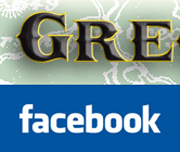Devlin
There was once a not unimportant sept of O Doibhilin, anglice O’Devlin, in what is now the barony of Corran, Co. Sligo. As late as 1316 one of these, Gillananaev O’Devlin, who was standard bearer to O’Connor, was slain in battle. Their descendants, however, have either died out or have been dispersed. The principal sept of the name belongs to Co. Tyrone. Their chiefs were lords of the territory known as Munterdevlin on the Tyrone shore of Lough Neagh. Eighty per cent of present day Devlins (the prefix O is seldom if ever used in modern times) are from Ulster, most of whom hail from Tyrone or an adjacent county. In the Elizabethan Fiants they are called Doibhin, but the name is scarcely found in any form in the census of 1659, since the Co. Tyrone is missing from that document. An O’Devlin who died in 1211 was Bishop of Kells. A prominent rebel in the Portadown area in 1641 was Patrick O’Develin; Francis O’Devlin (d. 1735), a Franciscan friar of Prague, born in Co. Tyrone, was a writer of some note; and James Devlin (d. 1825), was a veteran of the American War of Independence. The best known of the name in Irish history, however, was associated with Wicklow and Tyrone – Anne Devlin (1778-1851), the faithful servant of Robert Emmet, who though imprisoned and tortured would not give information against him. Joe Devlin (1872-1934), the Belfast Nationalist M.P., one of the best known figures in Ireland during the first twenty years of the present century, and another Joseph Devlin (b. 1869), who wrote voluminously over the nom de plume of “Northern Gael”, were both unmistakable Ulstermen. Mr. T. O Raifeartaigh informs me that the O’Devlins of Co. Sligo are still extant, and even numerous in counties Sligo, Leitrim and Cavan, but the name there has been widely changed to Dolan.






